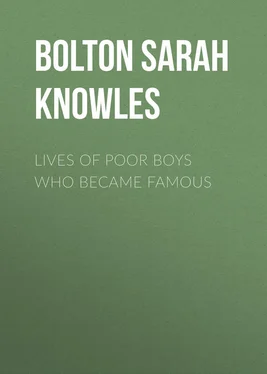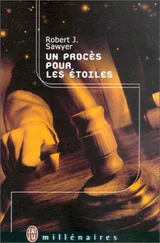Sarah Bolton - Lives of Poor Boys Who Became Famous
Здесь есть возможность читать онлайн «Sarah Bolton - Lives of Poor Boys Who Became Famous» — ознакомительный отрывок электронной книги совершенно бесплатно, а после прочтения отрывка купить полную версию. В некоторых случаях можно слушать аудио, скачать через торрент в формате fb2 и присутствует краткое содержание. ISBN: , Жанр: foreign_prose, foreign_antique, Биографии и Мемуары, foreign_language, на английском языке. Описание произведения, (предисловие) а так же отзывы посетителей доступны на портале библиотеки ЛибКат.
- Название:Lives of Poor Boys Who Became Famous
- Автор:
- Жанр:
- Год:неизвестен
- ISBN:http://www.gutenberg.org/ebooks/35950
- Рейтинг книги:4 / 5. Голосов: 1
-
Избранное:Добавить в избранное
- Отзывы:
-
Ваша оценка:
- 80
- 1
- 2
- 3
- 4
- 5
Lives of Poor Boys Who Became Famous: краткое содержание, описание и аннотация
Предлагаем к чтению аннотацию, описание, краткое содержание или предисловие (зависит от того, что написал сам автор книги «Lives of Poor Boys Who Became Famous»). Если вы не нашли необходимую информацию о книге — напишите в комментариях, мы постараемся отыскать её.
Lives of Poor Boys Who Became Famous — читать онлайн ознакомительный отрывок
Ниже представлен текст книги, разбитый по страницам. Система сохранения места последней прочитанной страницы, позволяет с удобством читать онлайн бесплатно книгу «Lives of Poor Boys Who Became Famous», без необходимости каждый раз заново искать на чём Вы остановились. Поставьте закладку, и сможете в любой момент перейти на страницу, на которой закончили чтение.
Интервал:
Закладка:
Lives of Poor Boys Who Became Famous
PREFACE
These characters have been chosen from various countries and from varied professions, that the youth who read this book may see that poverty is no barrier to success. It usually develops ambition, and nerves people to action. Life at best has much of struggle, and we need to be cheered and stimulated by the careers of those who have overcome obstacles.
If Lincoln and Garfield, both farmer-boys, could come to the Presidency, then there is a chance for other farmer-boys. If Ezra Cornell, a mechanic, could become the president of great telegraph companies, and leave millions to a university, then other mechanics can come to fame. If Sir Titus Salt, working and sorting wool in a factory at nineteen, could build one of the model towns of the world for his thousands of workingmen, then there is encouragement and inspiration for other toilers in factories. These lives show that without WORK and WILL no great things are achieved.
I have selected several characters because they were the centres of important historical epochs. With Garibaldi is necessarily told the story of Italian unity; with Garrison and Greeley, the fall of slavery; and with Lincoln and Sheridan, the battles of our Civil War.
S. K. B.GEORGE PEABODY
If America had been asked who were to be her most munificent givers in the nineteenth century, she would scarcely have pointed to two grocer's boys, one in a little country store at Danvers, Mass., the other in Baltimore; both poor, both uneducated; the one leaving seven millions to Johns Hopkins University and Hospital, the other nearly nine millions to elevate humanity. George Peabody was born in Danvers, Feb. 18, 1795. His parents were respectable, hard-working people, whose scanty income afforded little education for their children. George grew up an obedient, faithful son, called a "mother-boy" by his companions, from his devotion to her, – a title of which any boy may well be proud.
At eleven years of age he must go out into the world to earn his living. Doubtless his mother wished to keep her child in school; but there was no money. A place was found with a Mr. Proctor in a grocery-store, and here, for four years, he worked day by day, giving his earnings to his mother, and winning esteem for his promptness and honesty. But the boy at fifteen began to grow ambitious. He longed for a larger store and a broader field. Going with his maternal grandfather to Thetford, Vt., he remained a year, when he came back to work for his brother in a dry-goods store in Newburyport. Perhaps now in this larger town his ambition would be satisfied, when, lo! the store burned, and George was thrown out of employment.
His father had died, and he was without a dollar in the world. Ambition seemed of little use now. However, an uncle in Georgetown, D.C., hearing that the boy needed work, sent for him, and thither he went for two years. Here he made many friends, and won trade, by his genial manner and respectful bearing. His tact was unusual. He never wounded the feelings of a buyer of goods, never tried him with unnecessary talk, never seemed impatient, and was punctual to the minute. Perhaps no one trait is more desirable than the latter. A person who breaks his appointments, or keeps others waiting for him, loses friends, and business success as well.
A young man's habits are always observed. If he is worthy, and has energy, the world has a place for him, and sooner or later he will find it. A wholesale dry-goods dealer, Mr. Riggs, had been watching young Peabody. He desired a partner of energy, perseverance, and honesty. Calling on the young clerk, he asked him to put his labor against his, Mr. Riggs's, capital. "But I am only nineteen years of age," was the reply.
This was considered no objection, and the partnership was formed. A year later, the business was moved to Baltimore. The boyish partner travelled on horseback through the western wilds of New York, Pennsylvania, Maryland, and Virginia, selling goods, and lodging over night with farmers or planters. In seven years the business had so increased, that branch houses were established in Philadelphia and New York. Finally Mr. Riggs retired from the firm; and George Peabody found himself, at the age of thirty-five, at the head of a large and wealthy establishment, which his own energy, industry, and honesty had helped largely to build. He had bent his life to one purpose, that of making his business a success. No one person can do many things well.
Having visited London several times in matters of trade, he determined to make that great city his place of residence. He had studied finance by experience as well as close observation, and believed that he could make money in the great metropolis. Having established himself as a banker at Wanford Court, he took simple lodgings, and lived without display. When Americans visited London, they called upon the genial, true-hearted banker, whose integrity they could always depend upon, and transacted their business with him.
In 1851, the World's Fair was opened at the Crystal Palace, London, Prince Albert having worked earnestly to make it a great success. Congress neglected to make the needed appropriations for America; and her people did not care, apparently, whether Powers' Greek Slave, Hoe's wonderful printing-press, or the McCormick Reaper were seen or not. But George Peabody cared for the honor of his nation, and gave fifteen thousand dollars to the American exhibitors, that they might make their display worthy of the great country which they were to represent. The same year, he gave his first Fourth of July dinner to leading Americans and Englishmen, headed by the Duke of Wellington. While he remembered and honored the day which freed us from England, no one did more than he to bind the two nations together by the great kindness of a great heart.
Mr. Peabody was no longer the poor grocery boy, or the dry-goods clerk. He was fine looking, most intelligent from his wide reading, a total abstainer from liquors and tobacco, honored at home and abroad, and very rich. Should he buy an immense estate, and live like a prince? Should he give parties and grand dinners, and have servants in livery? Oh, no! Mr. Peabody had acquired his wealth for a different purpose. He loved humanity. "How could he elevate the people?" was the one question of his life. He would not wait till his death, and let others spend his money; he would have the satisfaction of spending it himself.
And now began a life of benevolence which is one of the brightest in our history. Unmarried and childless, he made other wives and children happy by his boundless generosity. If the story be true, that he was once engaged to a beautiful American girl, who gave him up for a former poor lover, the world has been the gainer by her choice.
In 1852, Mr. Peabody gave ten thousand dollars to help fit out the second expedition under Dr. Kane, in his search for Sir John Franklin; and for this gift a portion of the newly-discovered country was justly called Peabody Land. This same year, the town of Danvers, his birthplace, decided to celebrate its centennial. Of course the rich London banker was invited as one of the guests. He was too busy to be present, but sent a letter, to be opened on the day of the celebration. The seal was broken at dinner, and this was the toast, or sentiment, it contained: "Education — a debt due from present to future generations. " A check was enclosed for twenty thousand dollars for the purpose of building an Institute, with a free library and free course of lectures. Afterward this gift was increased to two hundred and fifty thousand dollars. The poor boy had not forgotten the home of his childhood.
Four years later, when Peabody Institute was dedicated, the giver, who had been absent from America twenty years, was present. New York and other cities offered public receptions; but he declined all save Danvers. A great procession was formed, the houses along the streets being decorated, all eager to do honor to their noble townsman. The Governor of Massachusetts, Edward Everett, and others made eloquent addresses, and then the kind-faced, great-hearted man responded: —
Читать дальшеИнтервал:
Закладка:
Похожие книги на «Lives of Poor Boys Who Became Famous»
Представляем Вашему вниманию похожие книги на «Lives of Poor Boys Who Became Famous» списком для выбора. Мы отобрали схожую по названию и смыслу литературу в надежде предоставить читателям больше вариантов отыскать новые, интересные, ещё непрочитанные произведения.
Обсуждение, отзывы о книге «Lives of Poor Boys Who Became Famous» и просто собственные мнения читателей. Оставьте ваши комментарии, напишите, что Вы думаете о произведении, его смысле или главных героях. Укажите что конкретно понравилось, а что нет, и почему Вы так считаете.












